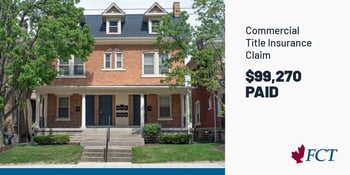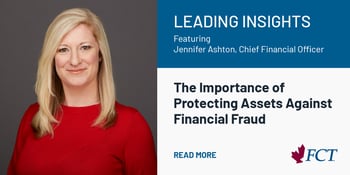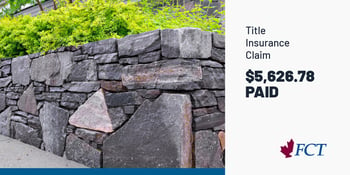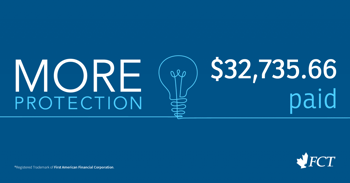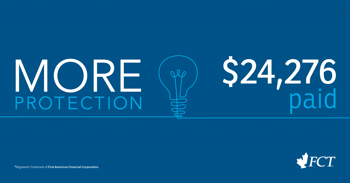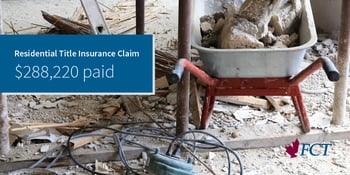
In a recent Toronto Star article titled “You can still lose land through squatter’s rights” he deals with the legal concept of adverse possession.” , the author – Mark Weisleder clearly and accurately sets out the rules for claiming adverse possession and poses a question about the interplay between adverse possession and title insurance that I will answer in this post.
Generally speaking courts are somewhat reluctant to grant orders giving title through adverse possession and will ensure strict compliance with the requirements but in the appropriate circumstances, these orders will be issued.
To understand the interplay between title insurance and adverse possession, it is best to consider the issue from both sides of the fence. We have to look at the issue from the point of view of the person claiming adverse possession and from the point of view of the person against whom adverse possession is being claimed. Let’s start with the person against whom adverse possession is being claimed. A title insurance policy insures that a person has title to a particular parcel of land. The specific legal description of the insured land is set out on a schedule attached to the title insurance policy. Where another person claims title by way of adverse possession he or she is claiming an interest in the parcel of land that is insured. In this case the title insurance policy will respond because it insures against losses that arise when someone else owns, or claims to own, an interest in the title that is insured. The policy can either cover the legal costs of defending the adverse possession claim or alternatively it could pay the insured the actual loss that would arise from the loss of the land that is the subject matter of the adverse possession claim.
Now, let’s look at the issue from the other side – from the point of view of the person claiming title by way of adverse possession. For the same reason that a title insurance policy will respond to assist a person against whom adverse possession is being claimed it will not respond to assist a person claiming adverse possession. Remember that a title insurance policy insures title to a specifically described parcel of land. The description of the land that is insured is set out on a schedule to the policy and coincides with the description in the insured’s deed. The title insurance policy has an exclusion for losses that arise from the lack of a right “to any land outside the area specifically described and referred to” in schedule attached to the policy. In the case of adverse possession a person is, by definition, claiming land not contained in their deed and not insured under the policy and because of this exclusion the policy will not respond to assist a person making a claim for adverse possession. A title insurance policy may offer some indirect coverage for people claiming adverse possession such as coverage for the forced removal of encroachments or survey coverage but there is no direct coverage for claiming land that is not insured under the policy.
So in effect title insurance protects an insured against claims of adverse possession (not in support of claims of adverse possession). Does that clarify the issues? What questions do you have?
Insurance by FCT Insurance Company Ltd, with the exception of commercial policies. Subject to certain exceptions, commercial title insurance policies equal or below $10M CAD are provided by FCT Insurance Company Ltd. Commercial title insurance policies above $10M CAD are provided by First American Title Insurance Company. Services by First Canadian Title Company Limited. The services company does not provide insurance products. This material is intended to provide general information only. For specific coverage and exclusions, refer to the applicable policy. Copies are available upon request. Some products/services may vary by province. Prices and products/services offered are subject to change without notice.
®Registered Trademark of First American Financial Corporation.
















































